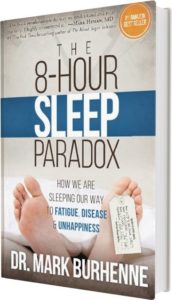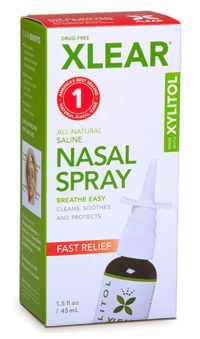Snoring and Oral Health: What You Need to Know
According to the National Sleep Foundation, around 90 million Americans snore. And while it may seem like little more than an inconvenience, snoring can point to more serious issues. [1]
In fact, numerous studies have shown that a lack of high-quality sleep can have a negative impact on key health factors, from weight gain to impaired cognitive function. [2] What’s more, snoring is probably the most obvious sign that you’re not sleeping well.
I use the term sleep ability to describe someone’s ability to breathe uninterrupted while sleeping. This topic is covered in-depth in my book, The 8 Hour Sleep Paradox, but suffice it to say that improving sleep quality—and reducing or eliminating snoring—is one of the best ways to boost overall wellness, including oral and dental health.
Why is Snoring So Bad?
Beyond being annoying for whoever’s sleeping next to you, snoring can be a sign of sleep apnea, a disorder that causes reduced airflow during sleep. This condition is more common than ever, with some studies estimating that one in two women have sleep apnea.
There are two types of sleep apnea: Obstructive sleep apnea, in which the upper airway is blocked to a point that it significantly or completely stops airflow when you’re sleeping. And central sleep apnea, in which the brain doesn’t seem to send signals that the body needs to breathe.
From an overall health perspective, this is bad news. According to the Mayo Clinic, sleep apnea can increase your risk for daytime sleepiness, difficulty concentrating, high blood pressure, heart attack, and stroke. [3]
But recent research has found a direct relationship between sleep quality and oral health.
A 2017 questionnaire study of 230 Indian dental students found that people who had poor oral health also tended to have more sleep disturbances and fatigue, while also determining that people who were more consistent with flossing also tended to be better rested. [4]
How Poor Sleep Impacts Oral and Dental Health
There’s a good chance that if you have obstructive sleep apnea, you’re grinding your teeth.
A 2015 study linked the occurrences of teeth grinding to occurences of obstructive sleep apnea, suggesting that apnea could be a direct cause of some cases of bruxism. [5]
Teeth grinding is one of the ways the body forces itself to breathe again. And while breathing is a good thing, teeth grinding can damage the teeth and the jawbone, causing gum recession, increasing the risk of cavities and tooth sensitivity, and sometimes causing chronic pain in the jaw itself.
If you’re snoring, there’s also a good chance you’re breathing through your mouth, which can cause an additional set of problems.
When you breathe through your mouth, your mouth tends to dry out. This then increases your risk of cavities, because teeth aren’t being coated in saliva as often as they are when you’re awake. This is important because saliva plays a crucial role in the remineralization process that helps the teeth continually rebuild and heal existing cavities naturally.
Mouth breathing also causes the pH of the mouth to drop into a more acidic zone. Like consuming coffee or wine (which are both highly acidic), this process promotes enamel erosion and can also contribute to the destruction of the teeth.
Bad breath can also be an unexpected side effect of mouth breathing, as a dry mouth allows certain strains of harmful oral bacteria to grow out of control.
Additionally, research between 2012 and 2013 examined nearly 30,000 patients, more than 11,000 of whom had sleep disorders. The patients with sleep disorders had a significantly higher rate of gingivitis, which also appeared to increase risk for cardiovascular disease. [6]
In short, mouth breathing, which is a common side effect of snoring, is bad news for your entire oral microbiome.
6 Common Causes of Snoring
Before we looks at ways to stop snoring, let’s discuss how it starts.
From an anatomical perspective, snoring happens when you’re drifting from lighter sleep into deeper sleep and the muscles in your soft palate, tongue, and throat relax. These muscles then partially block the airway and cause a vibration when you inhale, which is the sound of snoring. And snoring gets louder the more blocked the airway is.
Not everyone snores, though, so there must be more specific and unique causes that lead to airway blockage during sleep.
According to the Mayo Clinic, these causes include:
- The natural shape of your sinuses and mouth.
The human airway is only about the size of a straw, and it’s also bent at a 90 degree angle (think of the angle from your mouth to your throat.) And at the bend in your throat, it’s even narrower.
When your muscles are taut and alert during the day, this doesn’t pose a problem, but when you sleep, the muscles start to relax, which causes snoring. For people who have larger sinuses, tonsils, or other issues, these problems are exacerbated.
- Drinking alcohol.
Alcohol encourages the muscles in your mouth and throat to relax further, which can lead to snoring.
- Sinus and nasal issues.
Congestion or a deviated nasal septum can contribute to blocked airways and, therefore, snoring.
- Exhaustion.
If you aren’t getting enough sleep, when you do finally catch some Zs your throat can relax even further, leading to snoring.
- Sleep position.
When you’re laid flat on your back, gravity can encourage your throat to narrow, increasing the possibility of snoring.
- Sleep apnea.
As discussed, sleep can either cause airway blockage during sleep or interrupt the brain’s signals that tell the body to breathe. Snoring occurs as the body struggles to breathe.
How Can I Tell if I Snore?
The most common and straightforward way to find out whether you snore is to ask a friend or a a loved one who sleeps nearby.
In fact, my wife and I didn’t realize that she snored until we were on a family vacation and one of my daughters mentioned hearing her mother snore. It was an eye-opening revelation for us, and it led to my wife’s diagnosis of sleep apnea.
Which brings me to my next point:
Asking your partner, roommate, or friend if you snore can be helpful, but if you’re looking for a more formal confirmation—and, perhaps, the reasons behind your snoring—your doctor or dentist may recommend a sleep study.
Participating in a sleep study doesn’t necessarily mean you’ll have to sleep in a lab—which can be uncomfortable and expensive, often costing around $4k or $5k. There are actually several at-home sleep studies available now, which do everything from gather information on your sleep cycles to recording audio of your snoring.
My favorite is Knit Health, which records video of your sleep but doesn’t require you to wear any wires or other monitoring equipment. It also provides enough information for a dentist to diagnose a snoring problem. From there, he or she can work with you to consider the best ways to address the issue.
Monitoring Sleep
The Best Ways to Stop Snoring
It may take some trial and error, but by implementing the following tips, you can make a significant impact on your snoring—and potentially stop snoring altogether.
- Drink less.
Limit or avoid alcohol, especially close to bedtime.
- Establish—and stick to—a sleep schedule.
Try to get regular restful sleep, so that you’re not totally exhausted when you hit the hay.
- Use a pillow.
Propping your head up on a pillow instead of sleeping flat can be a quick and easy way to stop snoring, especially if you tend to sleep on your back.
- Use a nasal spray.
If you’re feeling congested or recovering, consider a nasal spray to help open the nasal passages. I’ve personally found the best results with Xlear nasal spray.
My Pick
- Try mouth taping.
Not familiar with mouth taping? Essentially, you put tape over your mouth in order to encourage your body to breathe through your nose. This reduces the chance of snoring and is overall better for your health, helping with everything from high blood pressure, to anxiety and depression.
If you have trouble getting comfortable or find yourself removing the tape at night, it’s a good sign you should speak with an ear, nose, and throat specialist to determine why you’re having trouble breathing through your nose.
You don’t want to try this with duct tape, of course. Somnifix offers specially designed mouth tape that is gentle on skin and pre-cut for convenience.
My Pick
Final Thoughts
Dentists are only beginning to understand the full impact that snoring has on patients, but it’s clear that poor sleep has a negative effect on oral health. If you want to stop snoring, it’s worth having a conversation with your dentist to determine the root cause of the issue and the best way to improve it.
read next: The Complete Guide to At-Home Sleep Tests, Plus My Favorite Way to Track SleepWant to learn more? Check out my #1 Amazon bestselling book, The 8-Hour Sleep Paradox.
 This book will teach you how to achieve your highest quality sleep to become your best, brightest, most capable self.
This book will teach you how to achieve your highest quality sleep to become your best, brightest, most capable self.
This 3-step program will show you how you can get the kind of sleep that unlocks your ability to:
- Achieve your perfect weight by suppressing your appetite naturally
- Slow down the aging process
- Wake up happy and refreshed every morning
- Improve your energy levels, concentration and mental focus
- End daytime sleepiness and brain fog
Click here to read the reviews on Amazon
The post Snoring and Oral Health: What You Need to Know appeared first on Ask the Dentist.
from Ask the Dentist https://askthedentist.com/snoring/





Comments
Post a Comment